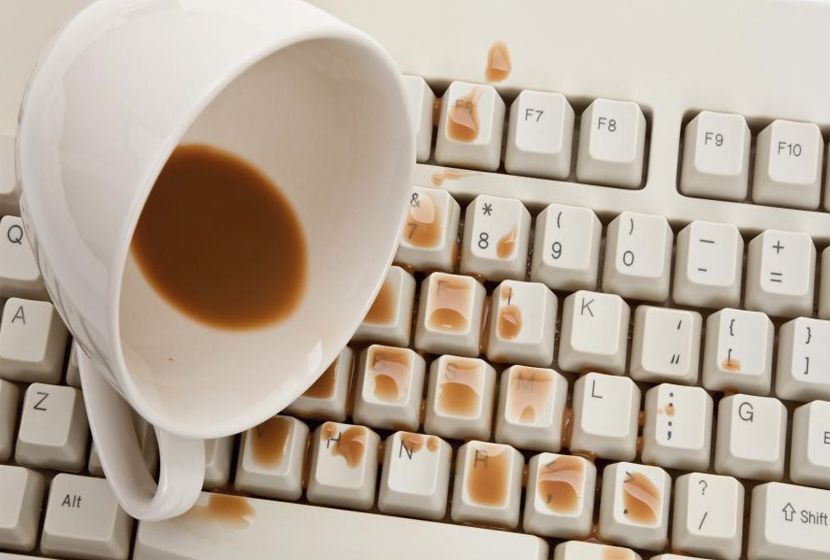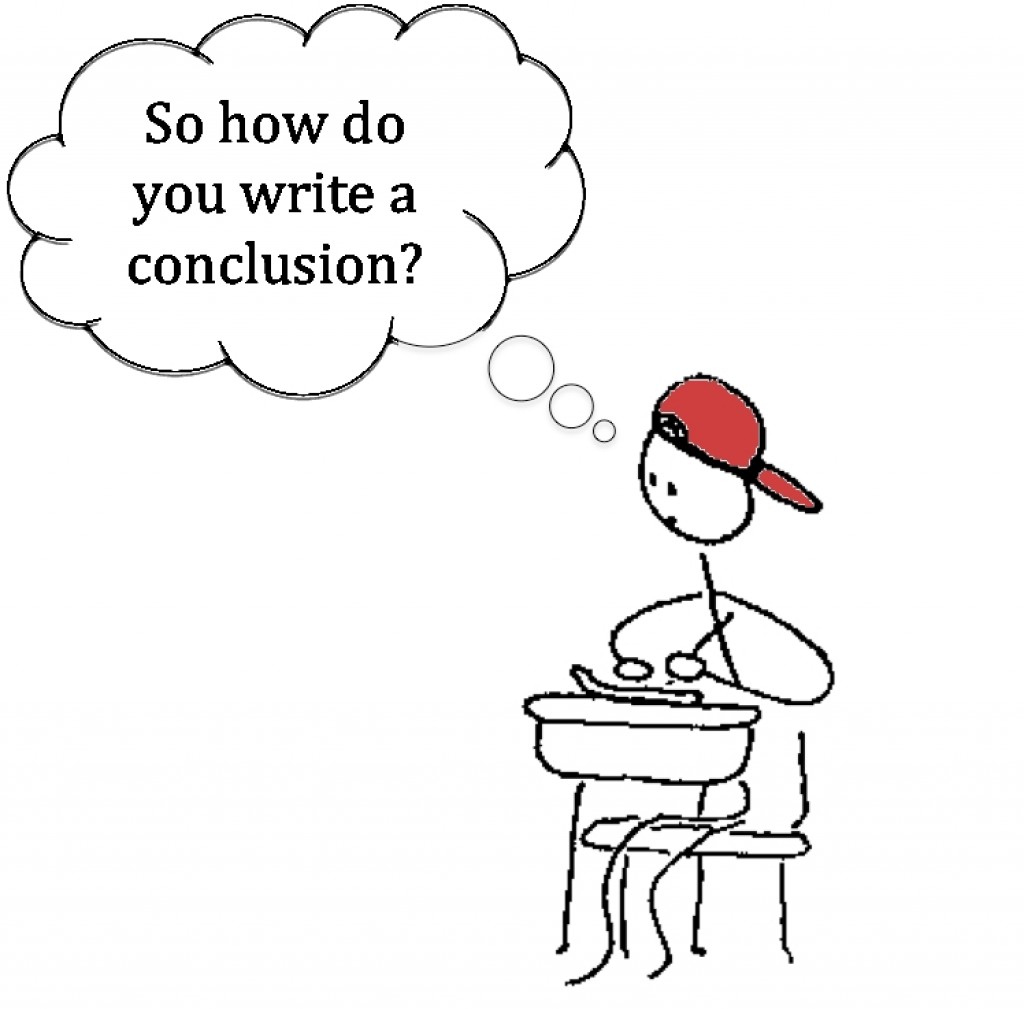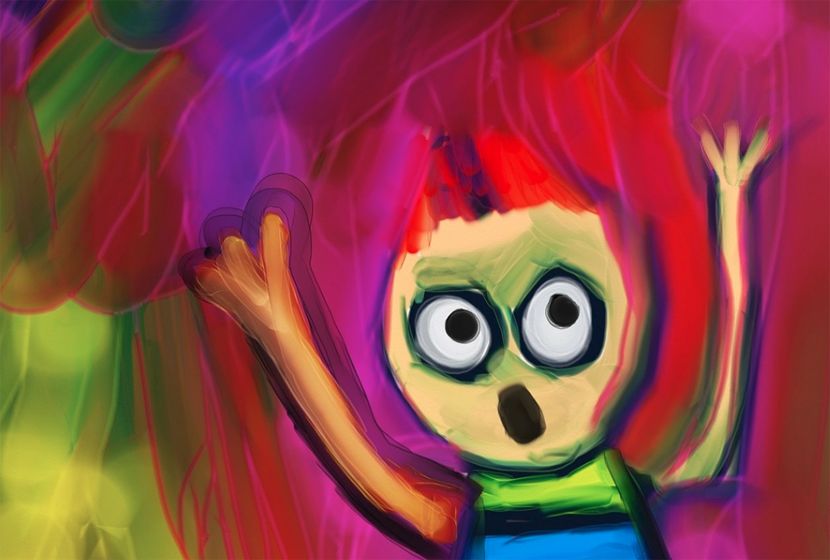This non fiction writing determines what liquids lead to the crash of electronic devices. These liquids include coffee, water, soda, wine, beer, seawater, hot tea, hard liquor, bodily fluid, polish remover, and tritiated water. Their spillage has effects such as short circuits, corrosion of metallic components, and interference with fans in computers. There are protective measures that can be taken before spillage occurs, such as not drinking or ensuring that drinking containers have tight lids. However, if spillage occurs, certain measures can be taken to prevent key damage, such as putting the computer off, taking it from the power source, removing the battery, turning it upside down to let the liquid drain, and taking it to a specialist. Thus, this non fiction writing shows that the only way to prevent damage to devices from liquid spillage is to avoid drinking near them.
Introduction of Non Fiction Writing
The fluid spill is one of the causes when it happens accidentally. Basically, the damage to electronic devices occurs because fluids and electricity cannot mix. In this case, the fluids that are capable of damaging electronics are coffee, water, soda, wine, beer, seawater, hot tea, hard liquor, bodily fluids, nail polish remover, and tritiated water
Coffee
Some fluids cause damage to most electronic devices. In particular, coffee is in the number one spot because it accounts for 40 percent of spills (Sewell, 2014). Apart from that, it is also the worst enemy of electronics, such as computers, due to its sugary nature and heat. Especially for coffee with sugar and cream, the residue remains inside the computer components even after the liquid has dried, and it slowly leads to long-term damage to computer components. In turn, coffee spillage will most likely damage the keyboard by making it sticky. According to the study, the percentage of coffee spillage is higher compared to beer due to the little foam it has on top, which results in the damaging effects of isolation (Nuwer, 2014). Therefore, coffee is one of the fluids discussed in this non fiction writing that will destroy most computers due to its easy spillage.
Water
Water is another fluid that destroys electronics. For example, it accounts for 20 percent of all fluid spillages (Sewell, 2014). Basically, most of the water that people use is not pure but contains sodium chloride. In this case, this water spills on a computer that is turned on, and it makes connections where this situation should not occur, leading to a large current, which causes a damaged circuit (“How Does Water Ruin Electronics,” 2017). However, water itself is not a conductor, but the impurities in it can skip electricity. In turn, water also causes corrosion since connections in computer components are made of metal elements. When metal connections in the circuit are corroded, the connection breaks, leading to the situation when the device is not working. Hence, water spillage in this non fiction writing is the second aspect in line after coffee when it comes to electronic damage.
Soda
Soda is a drink that also contributes to the damage of electronics. According to the data, it accounts for 12 percent of spills on electronics (Sewell, 2014). In particular, Soda contains a lot of chemicals, including acids, water, sugars, and natural flavors. Soda has a lot of sugar, and when it dries up in computers, it leaves a sticky sugar residue (Jean, 2010). This sticky sugar means that it never really dries but stays wet, being still conductive, which might lead to a damaged circuit due to large currents. Moreover, the sticky residue left by the soda stops the fans in the computer from rotating because of the resistance and overheating. The keypads and switches will also become sticky and will not work in the long-term perspective properly. Therefore, soda has a lot of negative effects on electronics in this non fiction writing.
Wine in Non Fiction Writing
Wine destroys computers since it contains grapefruit, which also has acid and sugar in it. For instance, wine accounts for 10 percent of all fluid spills on electronics (Sewell, 2014). The wine has various components that people use when making it. It contains yeast, sulfite preservatives, acetaldehyde, grape parts, and ethyl alcohol (Snooth, 2017). The acid dissolves metals without the presence of electricity due to their high concentration of hydrogen ions. The sugar deposits left behind after the fluid has dried have negative effects on the computer, such as the stickiness of keypads and interference with the fan (Dhar, 2017). For this reason, wine with all its components, when spilled on computers, causes some irreversible damages covered in this non fiction writing.

Beer
Beer spills cause damage to devices. By considering evidence, beer accounts for 6 percent of all fluid spills (Sewell, 2014). In particular, it contains sugar, water, and brown goo. Once the liquid dries, the sugar particles have similar effects on the computer as the fluids already discussed above. In addition, water causes short circuits and corrosion (“How does water destroy ruin electronics,” 2017). Then, brown goo acts the same way as sugar residue, and it might even interfere with the fans in the computer, leading to overheating. Just like wine, beer spillage may be due to the alcohol content. Therefore, apart from the effects of beer on electronics in this non fiction writing, the blame is also put on the user.
Seawater
Seawater is an enemy of electronics. For example, seawater accounts for 5 percent of all fluid spills, and it mostly contains salt, which is known as sodium chloride, including other elements that occur naturally, such as calcium, potassium, sulfate, and magnesium (Sewell, 2014). This compound is destructive to electronics because sea water is not safe for human consumption. In turn, if someone spills seawater on a computer, the effect will be corrosion accelerated by the voltaic cell formed by seawater, which leads to the situation when the computer is not working (Alcox, 2016). Unfortunately, if people do not have to spill sea water, living close to an ocean is enough to cause erosion due to the salty air. Thus, seawater is corrosive even without spillage, covering the main theme of non fiction writing.
Hot Tea, Hard Liquor, Bodily Fluids, and Polish Remover
Other fluids are hot tea, hard liquor, bodily fluids, and polish remover. These liquids account for the lowest percentage of spills, where hot tea is at 3 percent, hard liquor is at 2 percent, bodily fluids are at 1 percent, and nail polish remover is below 1 percent (Sewell, 2014). Firstly, hot tea has tannic acid that conducts electricity, and it causes a short circuit and also burns computer components. Then, hard liquors, such as vodka and brandy, have negative effects on the computer. Finally, polish removers destroy electronics because of their compounds. Specifically, polish removers contain ethyl acetate, and its purpose is to dissolve and remove lacquer from nails. When nail polish is spilled on a computer, it dissolves the board’s coating. Consequently, all these fluids kill electronics even though they contain different chemicals covered in this non fiction writing.
Tritiated Water
Additionally, there are liquids formed through radioactivity that can also crash electronics. In particular, tritium and hydrogen mixed with oxygen form tritiated water (“Frequently asked questions about liquid radioactive releases,” 2014). People use Tritium in aircraft dials, luminous paints, gauges, and wristwatches. Also, the radioactive strontium liquid can damage electronics. It is released from “nuclear power plants” and is used as internal radiotherapy, meaning it is not a common liquid (“Frequently Asked Questions,” 2014). Hence, the radioactive strontium liquid can damage computers by corroding the metal components and causing a short circuit. Therefore, even liquids that are inaccessible can still damage electronics by considering this non fiction writing.
Protective Measures
In spite of all these fluid spills that lead to damaging electronics, there are ways to protect them from fluid spillages. The first protective mechanism is to avoid drinks altogether while using a computer (Kessler, 2014). However, since this aspect is not realistic for most people, it is advisable to make sure that every container that holds the drink has a tight lid on it. Another way is to make sure that the drink is far away from the computer. If it is not, then people should put something in between the computer and the drink. Lastly, there are keyboard covers on the market that can be used for purposes of preventing liquid from getting into any electronics (Hunter, 2016). Thus, people should consider these measures from non fiction writing.
Preventive Methods in Non Fiction Writing
However, if a spillage occurs, people should take some measures to prevent maximum damage. First, the computer should be turned off, then unplugged from the power source, and if possible, the battery should be removed (Martindale, 2019). After the first step, people should try drying the computer by wiping liquid from the surface and putting it upside down for the liquid to come out. The next step is to open up the computer and let it air dry. Then, people should blow out any moisture, using compressed air and paper towels to soak up visible liquids. Other desperate measures are baking it and cleaning it out by using distilled water. If people do not have any knowledge of these measures, then it is better to take the computer to a technician. Even after all these measures, it is never a guarantee that the device will ever work.
Conclusion on Non Fiction Writing
In conclusion, this essay shows that coffee is among the number one fluids that destroy electronics. After that, water, followed by soda, wine, beer, seawater, hot tea, hard liquor, and body fluids, and, lastly, polish remover causes a negative influence on electronics. These fluids kill electronics by causing short circuits, corrosion, and interference of fans, which leads to overheating. However, fluid spillage on computers can be prevented by not drinking at all when turning on electronics, keeping drinks away from computers, and using keyboard covers. If the spill occurs, then there are measures to prevent damage. The measures include putting the device off and unplugging it, drying manually or using desiccants, and cleaning, by using distilled water or alcohol. Nonetheless, this
Damaged electronics can affect
References
Alcox, M. (2016). How salt water affects electronics. Retrieved from https://www.maxbotix.com/articles/135.htm
Dhar, S. (2018). The number one killer of MacBooks, and how to avoid it. Retrieved from https://beingmad.org/the-number-one-killer-of-macbooks-and-how-to-avoid-itthe-number-one-killer-of-macbooks-and-how-to-avoid-it/
Frequently asked questions about liquid radioactive releases. (2014). Retrieved from https://www.nrc.gov/reactors/operating/ops-experience/tritium/faqs.html
How does water ruin
Hunter, M. D. (2016). U.S. patent No. 9,241,552. Washington, DC: U.S. Patent and Trademark Office.
Jean, C. (2010). Cleaning soda off a motherboard. Retrieved from https://chrisjean.com/cleaning-soda-off-a-motherboard/
Kessler, T. (2014). How to spill-proof your laptop (and how to fix it if that fails). Retrieved from https://www.macworld.com/article/2607275/macbook/how-to-spill-proof-your-laptop-and-how-to-fix-it-if-that-fails.html
Martindale, J. (2019). Spilled water on your laptop? Here’s how to fix it. Retrieved from https://www.digitaltrends.com/computing/what-to-do-if-you-spilled-water-on-your-laptop/
Nuwer, R. (2014). Physicists explain why coffee is more prone to spills than beer. Retrieved from https://www.smithsonianmag.com/smart-news/physicists-explain-why-coffee-more-prone-spills-beer-180953346/
Sewell, D. (2014). Top-10 liquid spills that kill laptop computers. Retrieved from http://www.sewelltech.com/top-10-liquid-spills-kill-laptop-computers/
Snooth. (2017). 5 key wine components and how to detect them. Retrieved from https://www.huffingtonpost.com/gregory-dal-piaz/wine-tasting_b_1799853.html


